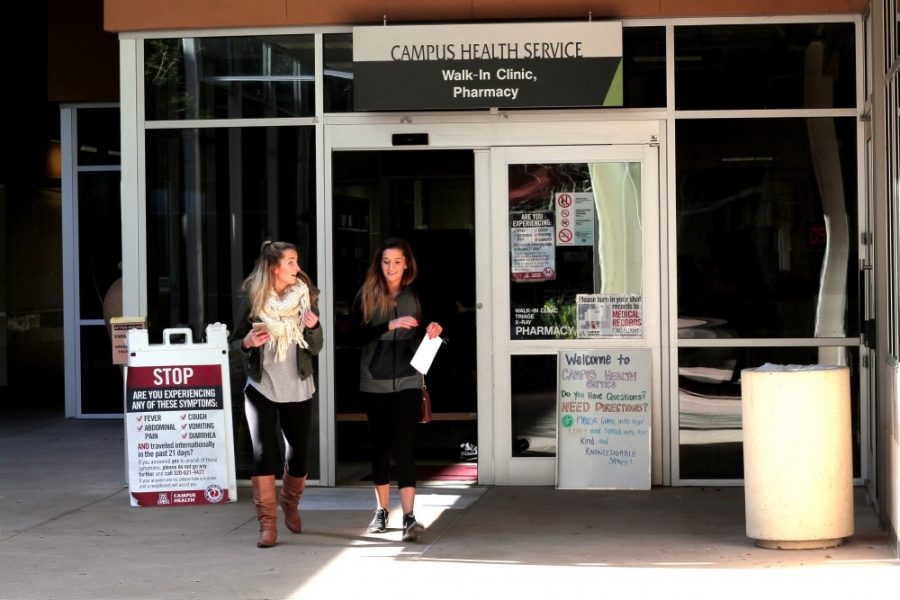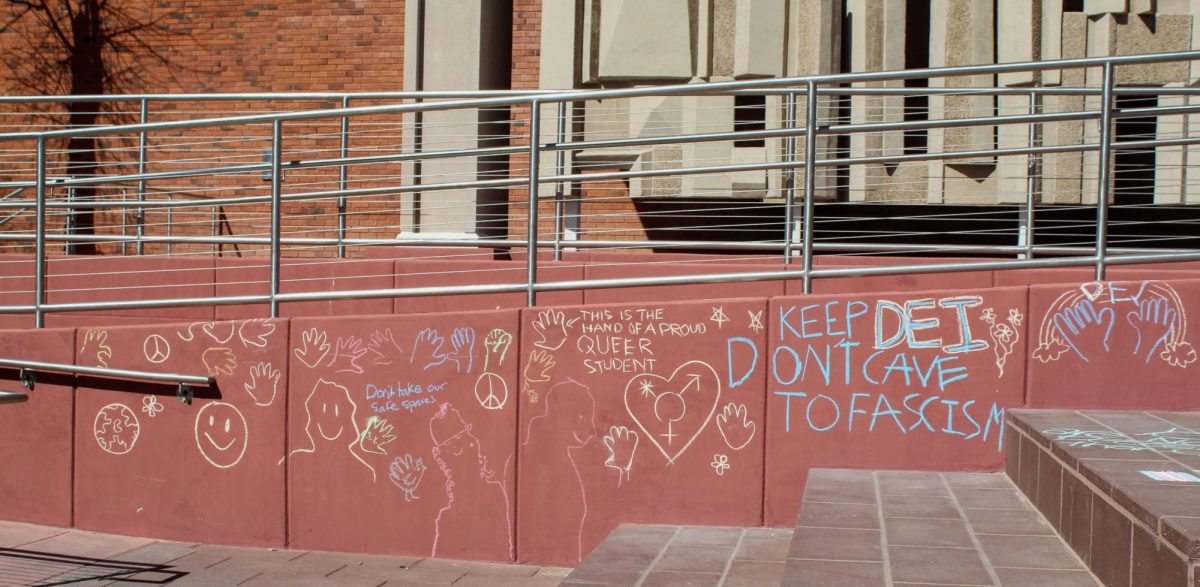While Meningitis B is not necessarily a new threat to the health of college students, it is still a relevant illness that UA’s Campus Health Service employees think should be addressed.
“When we’re talking about meningitis on college campuses, we’re usually talking about meningococcal meningitis, which is caused by a specific bacteria, and even though it is rare, it can be potentially life-threatening in a minority of cases,” said David Salafsky, director of Health Promotion and Preventative Services for UA Campus Health.
On average, one in 10 adolescents and young adults who develop Meningitis B will die from it, according to Trumenba medical brand, which supplies the meningitis B vaccine used by Campus Health.
“Meningitis B progresses very rapidly,” said Amy Direnfeld, a registered immunization nurse for Campus Health. “It’s an illness with similar symptoms as the flu, except that … you have a really stiff neck where you can’t even tuck your chin to your chest it hurts so bad.”
According to Direnfeld, the time it takes to eradicate Meningitis B from a patient varies from person to person. However, the more urgent concern lies in early diagnosis of the infection rather than how long treatment takes.
“You can lose a finger. You can lose a limb or a finger or a toe,” Direnfeld said. “You can lose hearing and it can ultimately lead to death very quickly before it’s even diagnosed, and that’s why we’re really worried about protecting college campuses from meningitis B.”
Five strains of meningitis exist; A, B, C, W and Y were the first strains recognized as an emergency in the U.S. Most children contract these strains of meningitis between ages 11 and 12.
“A few years ago, strain B of meningitis was showing up on college campuses,” Direnfeld said. “The first campus to publicly let us know that it was out there was Princeton University.”
At that time, the U.S. did not have the vaccination for meningitis B, Princeton had to get special permission from the FDA to get the vaccine from Europe, according to Direnfeld.
Since cases first occured at Princeton University and next at the University of California-Santa Barbara, college campuses have been relatively safe from meningitis B outbreaks, according to Salafsky.
“It’s not like there’s lots and lots of cases of meningitis across the country,” Salafsky said. “When it does come up, it often makes the news—in particular, with this meningitis B.”
According to Direnfeld, college campuses seem to be hotbeds for meningitis B because the infection is mainly contracted by those 16 to 23 years old. Meningitis B is also easily transmitted in places where people live in close quarters, such as prisons, residence halls or Greek Life houses.
Campus Health can provide two different vaccinations for meningitis. One vaccine protects against the A, C, W and Y strains, and the other vaccine protects against the B strain.
Anyone between the ages of 10 and 25 can receive the vaccine that protects against meningitis B. The vaccine is taken in three different doses spread over a six-month time frame. The cost of the vaccine is also covered completely by most major health insurance plans.
“We’ve seen quite a few students who have not only gotten their first one but completed the series from last year,” Direnfeld said. “This year, we’ve seen a lot of students come in to get their first of the series.”
According to Campus Health’s medical records department, approximately 220 students have come in to receive the meningitis B vaccination from July of 2015 to date.
“Fortunately, we have not had an outbreak here at the UA, and we want to try to keep it that way,” Direnfeld said, who recommends that students be more aware of the cleanliness of their surroundings.
She said that students should avoid sharing drinks or eating off of dirty dishes or with unwashed utensils.
“The UA’s position is to strongly recommend that all students receive the meningitis vaccine, but it is not mandatory,” Salafsky said. “The No. 1 thing that students can do to protect themselves is to make sure they’ve been vaccinated.”
Follow Jessica Suriano on Twitter.















